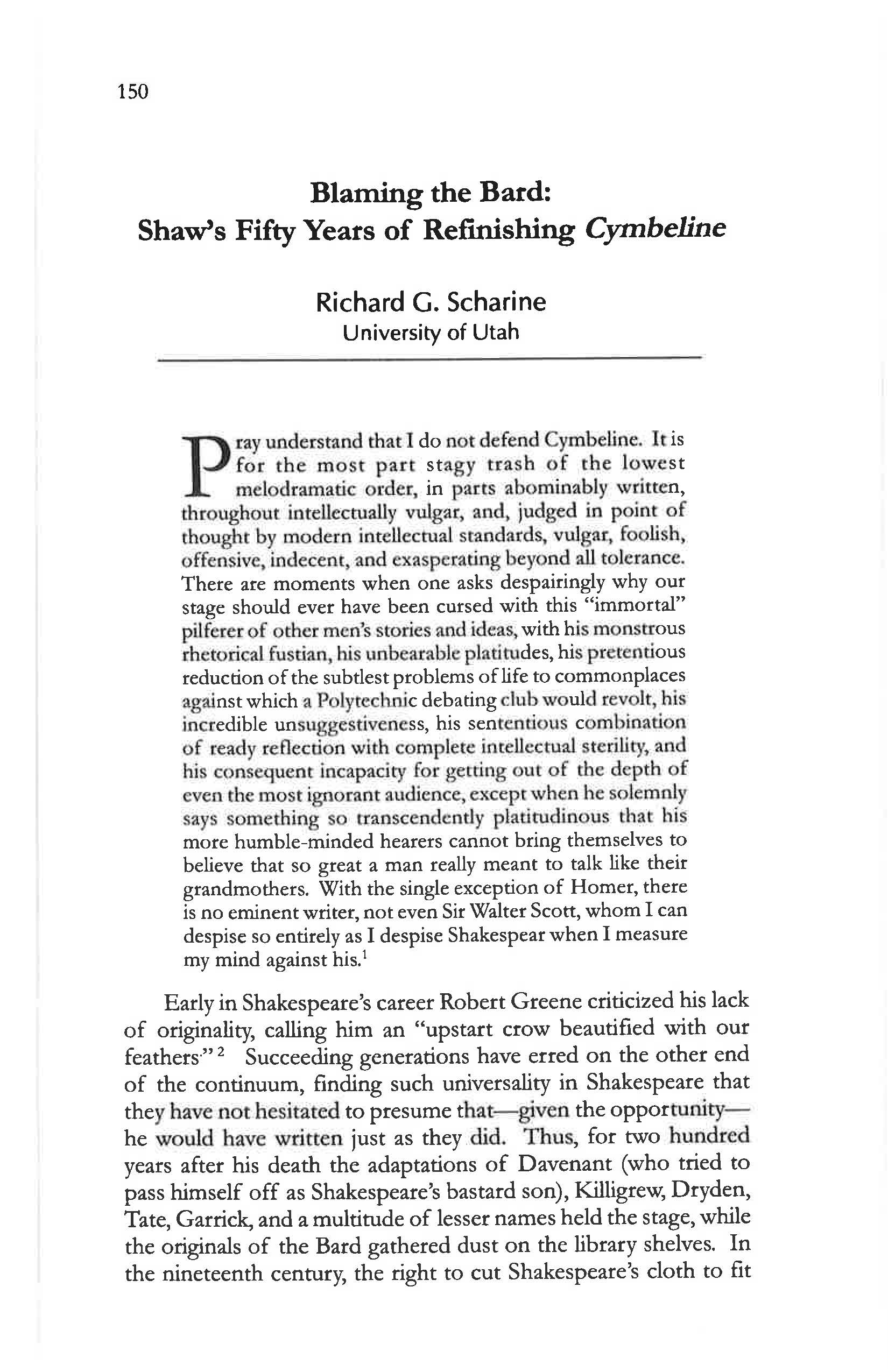Blaming the Bard: Shaw's Fifty Years of Refinishing Cymbeline
Main Article Content
Abstract
Early in Shakespeare’s career Robert Greene criticized his lack of originality, calling him an “upstart crow beautified with our feathers.”2 Succeeding generations have erred on the other end of the continuum, finding such universality in Shakespeare that they have not hesitated to presume that—given the opportunity—he would have written just as they did. Thus, for two hundred years after his death the adaptations of Davenant (who tried to pass himself off as Shakespeare’s bastard son), Killigrew, Dryden, Tate, Garrick, and a multitude of lesser names held the stage, while the originals of the Bard gathered dust on the library shelves. In the nineteenth century, the right to cut Shakespeare’s cloth to fit one’s own style passed from the playwright to the theatre manager. Therefore, in the words of George Rowell, Henry Irving “had reason to be grateful to Shakespeare (thought [it is to be] doubted whether Shakespeare had reason to be grateful to him),”3 and in our century the three and a half hours of the aptly title “Trevor Nunn’s The Merchant of Venice” ends with Jessica’s heartrending rendition of Shylock’s kaddish. Nor—until the happy uniting of the heirs of Shakespeare with the layers of Samuel Beckett and Arthur Miller—does this situation seem likely to change.
